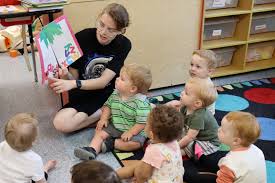Early learning is essential for a child’s development, laying the groundwork for future success. Innovative approaches, including technology integration, experiential learning, and personalized education, are emerging to enhance creativity, critical thinking, and problem-solving skills. This article discusses the importance of early learning and offers practical tips for educators and parents to adopt these strategies.
The Importance of Early Learning
The early years of a child’s life are marked by rapid brain development, making it a crucial period for learning and growth. High-quality early learning experiences, such as childcare like those available in Farmington, lay the groundwork for cognitive, social, and emotional development. Children who participate in effective early learning programs are more likely to excel academically, exhibit positive behavior, and develop essential life skills. By prioritizing early learning, we can empower young minds to reach their full potential and set them on a path to lifelong success.
Innovative Approaches to Early Learning
Technology Integration
Incorporating technology into early learning can create engaging and interactive educational experiences. Digital tools such as tablets, educational apps, and interactive whiteboards can make learning more dynamic and accessible. For example, apps that teach basic math and literacy skills through games can capture children’s attention and make learning fun. Technology can also facilitate personalized learning, allowing children to progress at their own pace and receive immediate feedback.
Experiential Learning
Experiential learning involves hands-on activities that encourage children to explore, experiment, and discover. This approach fosters active engagement and helps children make connections between concepts and real-world applications. Activities such as science experiments, nature walks, and art projects provide opportunities for experiential learning. For instance, a simple gardening project can teach children about plant life cycles, responsibility, and environmental stewardship.
Personalized Education
Personalized education tailors learning experiences to meet the individual needs and interests of each child. This approach recognizes that children learn differently and at varying paces. By providing customized learning paths, educators can address the unique strengths and challenges of each student. Personalized education can involve differentiated instruction, where teachers use a variety of teaching methods to cater to different learning styles. It can also include one-on-one mentoring and small group activities that focus on specific skills.
Benefits of Innovative Approaches
Enhancing Creativity
Innovative approaches to early learning can significantly enhance creativity in young children. By encouraging exploration and experimentation, children develop the ability to think outside the box and come up with original ideas. Activities like art projects, imaginative play, and storytelling stimulate creative thinking and allow children to express themselves in diverse ways.
Developing Critical Thinking
Critical thinking skills are essential for problem-solving and decision-making. Experiential learning and personalized education promote critical thinking by challenging children to analyze information, make connections, and draw conclusions. For example, a science experiment that requires children to hypothesize, observe, and analyze results helps develop their critical thinking abilities.
Building Problem-Solving Skills
Problem-solving is a crucial skill that children need to navigate life’s challenges. Innovative early learning approaches provide opportunities for children to encounter and solve problems in a supportive environment. Whether it’s figuring out how to build a stable structure with blocks or finding solutions to a group project, these experiences help children develop resilience and persistence.
Practical Tips for Educators and Parents
- Incorporate Technology Wisely: Use educational apps and digital tools to supplement traditional teaching methods. Ensure that screen time is balanced with other activities and that content is age-appropriate.
- Create Hands-On Learning Opportunities: Design activities that involve exploration and experimentation. Use everyday materials to create engaging, hands-on experiences.
- Personalize Learning Experiences: Observe each child’s interests and learning style. Provide a variety of activities and allow children to choose what they want to explore.
- Encourage Creative Expression: Offer diverse opportunities for creative expression, such as art, music, and dramatic play. Celebrate originality and encourage children to share their ideas.
- Foster a Growth Mindset: Encourage children to embrace challenges and view mistakes as learning opportunities. Praise effort and persistence, not just outcomes.
Conclusion
Empowering young minds through innovative early learning is vital for developing well-rounded individuals. By integrating technology, promoting experiential learning, and personalizing education, we can foster creativity, critical thinking, and problem-solving skills. Educators and parents are key in implementing these strategies, creating enriching environments that prepare children for a successful future.



